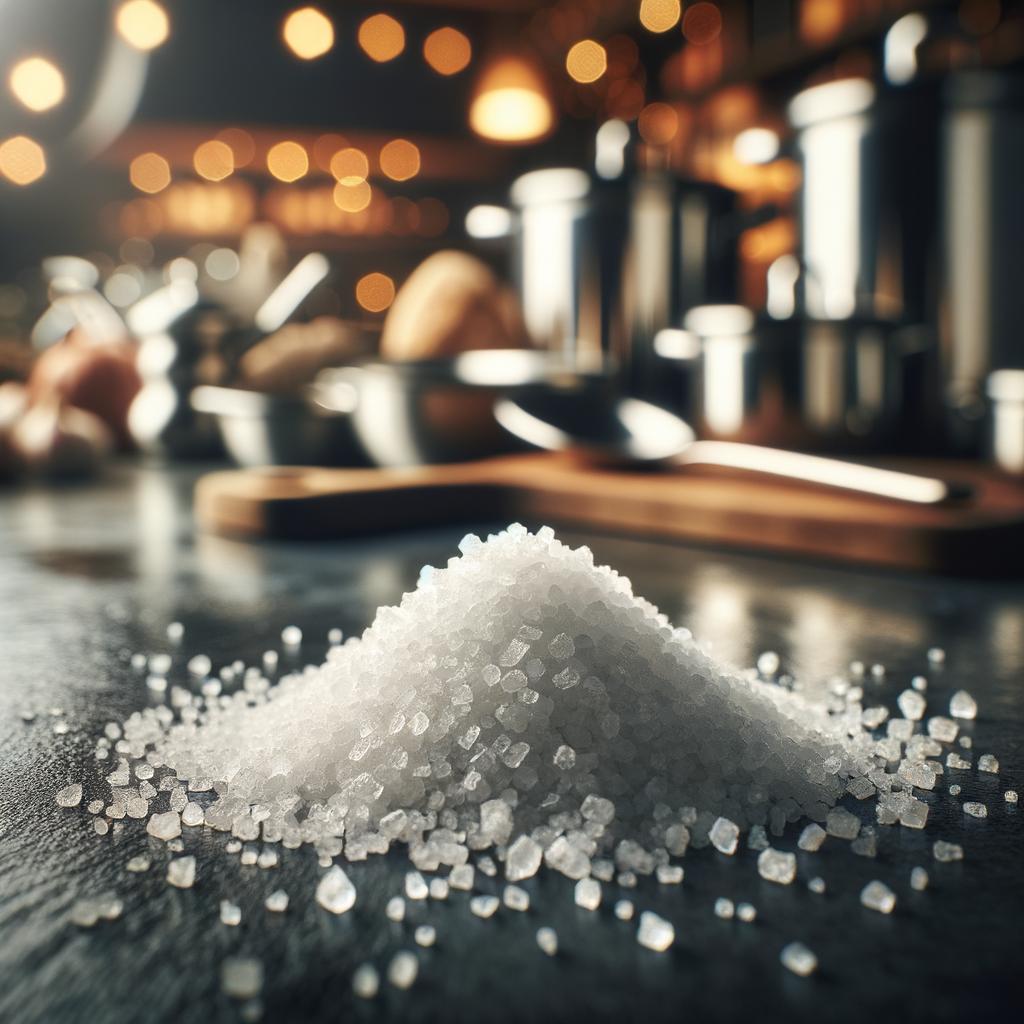Coarse Sea Salt

Description
Coarse sea salt, often referred to as the jewel of the sea, is a natural treasure that adds a dash of the ocean's essence to any dish. The granules are larger than those of table salt, reminiscent of tiny, glistening sea pebbles. Their texture is crunchy, providing a delightful surprise when they burst on the tongue. The flavor profile is complex and potent, offering a distinct brininess that surpasses the simple salinity of its table salt cousin. This salt's unique character lies in its mineral content, which can vary depending on the sea from which it's harvested, giving each variety a unique subtle flavor and color.
Primary Uses
Coarse sea salt is a versatile ingredient, commonly used to season and enhance the flavor of a wide variety of dishes. It's a key component in many cuisines worldwide, from the rustic Italian pasta to the traditional French bouillabaisse or the American barbecue. Its larger crystals make it ideal for curing meats and pickling vegetables. However, its use extends beyond the culinary world. In many cultures, sea salt is used in rituals for purification and protection. It also finds use in beauty treatments, as its mineral-rich crystals are believed to nourish and rejuvenate the skin.
History
The history of sea salt is as old as civilization itself. It was a precious commodity in ancient times, often used as a form of currency. It's said that Roman soldiers were sometimes paid in salt, giving birth to the word 'salary'. In many coastal communities, the art of salt harvesting has been passed down through generations, making it a symbol of cultural heritage and tradition. Over time, as industrialization brought cheaper alternatives, the use of coarse sea salt declined. However, with the resurgence of interest in natural and artisanal foods, coarse sea salt is once again being celebrated for its unique qualities.
Nutritional Information
Coarse sea salt is a rich source of essential minerals like magnesium, calcium, potassium, and iodine, which are often stripped away in the processing of table salt. These minerals contribute to various bodily functions, including bone health and maintaining fluid balance. While it's a healthier alternative to table salt, it's important to remember that it's still high in sodium. Consuming too much sodium can lead to health issues like high blood pressure and heart disease. Therefore, like any salt, it should be used in moderation. Compared to Himalayan pink salt, another mineral-rich salt, coarse sea salt has a slightly lower mineral content but offers a stronger flavor, making it a preferred choice for many chefs.

